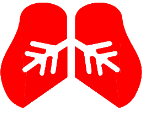
Adverse reactions to medications are common, yet everyone responds differently. One person may develop a rash or other reactions when taking a certain medication, while another person on the same drug may have no adverse reaction at all.
Only about 5% of these reactions are due to an allergy to the medication.
An allergic reaction occurs when the immune system overreacts to a harmless substance, in this case a medication, which triggers an allergic reaction. Sensitivities to drugs may produce similar symptoms, but do not involve the immune system.
Certain medications are more likely to produce allergic reactions than others. The most common are:
• Antibiotics, such as penicillin
• Aspirin and non-steroidal anti-inflammatory medications, such as ibuprofen
• Anti-seizure medications
• Monoclonal antibody therapy
• Chemotherapy
